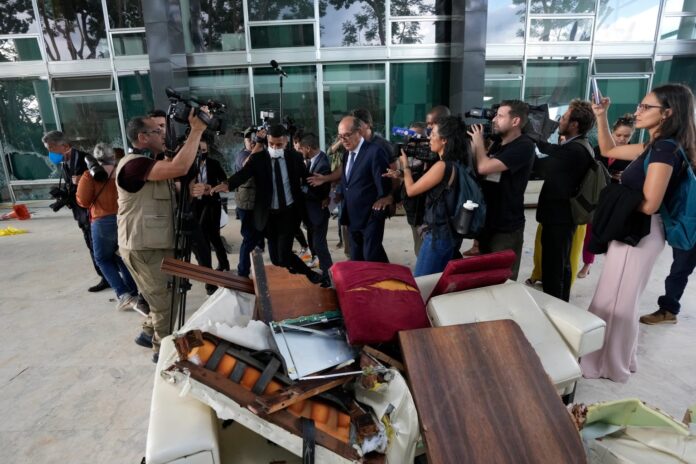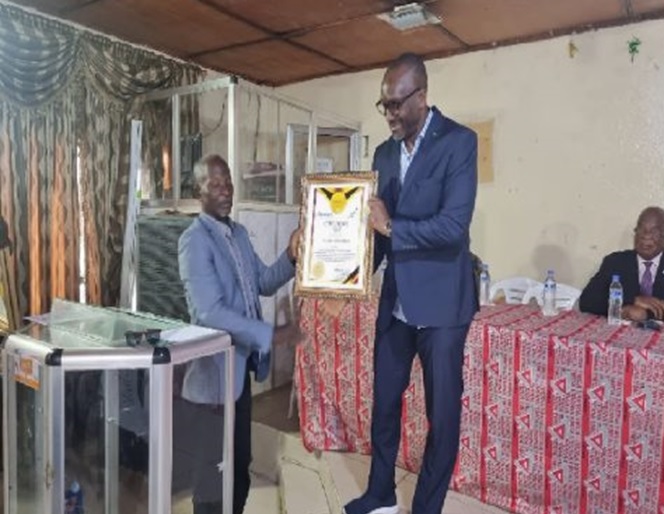RIO DE JANEIRO – Brazilian authorities must investigate all attacks on journalists covering the January 8 riots at the country’s capital and their aftermath, and adopt concrete measures to protect members of the press and reduce widespread hostility against the media, the Committee to Protect Journalists said Friday.
On January 8, thousands of supporters of former President Jair Bolsonaro raided the National Congress, Presidential Palace, and Supreme Court facilities in a violent riot in the country’s capital Brasília, destroying furniture, equipment, art, and parts of the buildings, according to multiple news reports.
According to the Brazilian Association of Investigative Journalism (Abraji) and the Federal District Journalists’ Union (SJPDF), at least 16 journalists were attacked or harassed at the capital on January 8, and at least 24 others have been targeted in the aftermath of the riots. Authorities have detained more than 1,200 people since the riots began, according to news reports.
“The extreme levels of hostility against journalists in Brazil covering the January 8 riots and other pro-Bolsonaro protests is alarming, and authorities must act immediately to identify the perpetrators and hold them accountable,” said Renata Neder, CPJ’s Brazil representative. “One of the tragic legacies of Bolsonaro’s government is the widespread animosity against the press. The new government must adopt immediate measures to reverse this trend and fulfill its responsibility to protect journalists.”
The journalists attacked on January 8 include:
A journalist from the local O Tempo newspaper, who rioters held for 30 minutes inside the National Congress, where they slapped, punched, kicked, and threatened him with firearms, according to statements published by his outlet. The journalist, who declined to disclose his name, citing safety concerns, wrote in the statement that the rioters accused him of “infiltrating.”
Marina Dias, a reporter with The Washington Post, who was surrounded, pushed, kicked, pulled by the hair, and had her glasses broken by rioters who also attempted to grab her phone, according to multiple news reports and a tweet by the journalist.
Rafaela Felicciano, a photojournalist for the news website Metrópoles, who was surrounded by 10 men who kicked and punched her and then stole her cellphone and camera’s memory card, according to news reports.
Two photographers, one working for AFP and the other for Reuters, who suffered physical aggression and had their equipment and cellphone stolen.
A full list including the other attacks on journalists can be found on the SJPDF’s website.
Abraji President Katia Brembatti told CPJ via messaging app that such attacks are “the culmination of a process that has been built over the years to characterize journalists as enemies to be defeated.”
“From the encouragement of rulers like Bolsonaro, media workers were dehumanized and delegitimized, becoming targets,” she said.
Between the presidential election run-off on October 30, 2022, and January 7, 2023, Abraji and the National Federation of Journalists (FENAJ) documented 78 incidents of physical attacks, harassment, threats, or acts that damaged journalists’ equipment.
FENAJ President Samira de Castro told CPJ that the incidents “constitute a serious attack on press freedom in the country, which has been deteriorating over the last six years, with violence ranging from physical and verbal aggression to censorship by public agents, judicial harassment, and even murder.”
On January 9, representatives from four press freedom organizations met with Paulo Pimenta, head minister of social communications for President Luiz Inacio Lula da Silva.
In a video tweeted on January 12, Pimenta said media workers “have suffered violence and hate while simply exercising their work, and this cannot be naturalized,” adding that he contacted the civil police chief in Brasília to request that journalist’s cases be handled differently so “investigations move quickly” and perpetrators can be identified and held responsible.
In response to CPJ’s request for comment, the Federal District Civil Police emailed a link to a statement that said they remain “in operational readiness until public order is restored.” CPJ emailed the federal government press office for comment but did not receive any reply.
CPJ also contacted Bolsonaro’s lawyer, Frederik Wassef, for comment via messaging app but did not immediately receive any reply.







